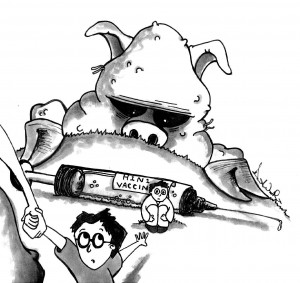
An August poll found that only 40 percent of parents said they would immunize their children against the H1N1 flu while 54 percent of parents said they would immunize their children against the seasonal flu.
Of the parents who said they would not immunize their children, 46 percent said they are not worried about their children contracting H1N1, and 20 percent said H1N1 is not serious.
Hopefully, parents have changed their minds about the vaccine since that poll.
Students, faculty and staff in the Centers for Disease Control and Prevention’s designated target groups or students who have children need to know the following information.
The CDC started shipping the vaccine Oct. 1. Tarrant County Public Health reported Oct. 5 that it received limited doses of the H1N1 nasal spray vaccine, but distribution plans were not announced.
The mist is for healthy, non-pregnant people between 2-49 years old who do not live or work with sick patients. The CDC recommends two doses four weeks apart for 9-year-olds and younger. For those older than 10, only one dose is needed.
Some may need four shots to protect against H1N1 and seasonal flu. Call a doctor to make sure.
The vaccines are safe, according to the Food and Drug Administration, which on Sept. 15 approved four vaccines based on clinical trials with healthy adults.
According to the CDC, the seasonal flu vaccine will not protect against the H1N1 flu.
The World Health Organization decides in February which three flu strains to protect against for the next year’s vaccination, too late to include the H1N1 strain in this year’s immunization, according to an Oct. 5 Time magazine report. The report recommends anyone needing two doses of either vaccination should use the same form of inoculation, whether it is spray or shot.
Students and parents should educate themselves fully before making a decision not to obtain the vaccine.
Cost should not be a deciding factor. Since the federal government purchased all 250 million doses, the H1N1 immunization is free (some providers may charge a small service fee).
The best Web sites to find information include Flu.gov, managed by the U.S. Department of Health and Human Services, Texasflu.gov and Texasprepares.org, both managed by the Texas Department of State Health Services.
But at the least, students should speak to the people at health services on each campus. They want to help.


























